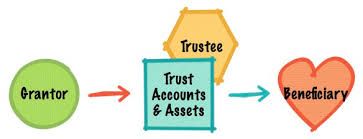What is a Trust?

A legal dictionary defines a trust something like this: an entity created to hold assets for the benefit of certain persons or entities with a trustee managing the trust. Most trusts are founded by the person(s) creating the trust, who sign a written declaration of trust which establishes the trust and spells out the terms and conditions upon which it will be conducted. The assets of the trust are usually given to the trust by the grantor, although others can add assets to it.
A trust can be compared to a Will, but is much more than that. Trusts are used during your lifetime, whereas a Will is not needed until after your death. Unlike a Will, the trust is never filed with a court and its contents are private. Usually you are the trustee and have the responsibility of administering and handling the assets in the trust. After creation of the trust, your assets are assigned, deeded, or transferred to the trust. The trust then owns the assets instead of you, but the assets are still for your use and benefit.
Why go to all this trouble? In the trust, you name a trusted person to be the successor trustee to manage the assets if you become disabled or incapacitated. The trustee is required use trust assets for your benefit, not theirs, and will be held accountable if they misuse the trust assets. Without a trust, the courts may decide who will handle your assets when you no longer have the ability yourself.
After the death of a married person, the assets in the trust are used for the surviving spouse until his/her passing. Lastly, after both pass away, the trustee can distribute the assets to beneficiaries as outlined in the trust without going through the probate process. This saves a lot of money for your heirs.











